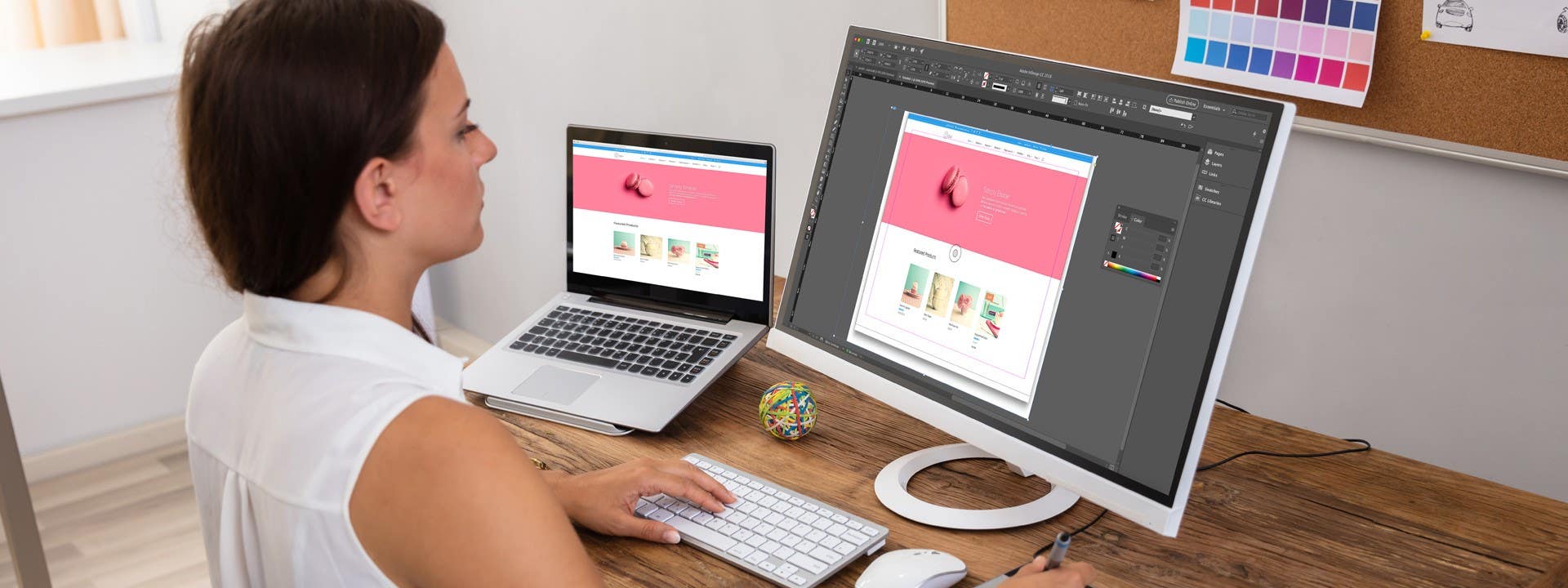
How to Become a Web Designer
How to Become a Web Designer
Web designers use their technical skills and creativity to design and alter websites. To have a successful career you’ll need originality, experience with computers and an eye–catching portfolio.
Interested in knowing more? Continue reading as we take a look at how to become a web designer.
What Qualifications Do You Need to Be a Web Designer?
There are a number of routes into website design:
1. Degree or Higher National Diploma (HND)
You could take an HND (Higher National Diploma) or a degree in a relevant subject. Suitable subjects include:
Entry requirements: For an HND you’ll need 1-2 A levels, a level 3 diploma or relevant experience. For a degree, you’ll need 2-3 A levels or equivalent.
2. Level 3 Qualifications
If you’ve got GCSEs you could do a level 3 certificate or diploma in a relevant subject such as web design, design and development or web and graphic design.
Entry requirements: 4 -5 GCSEs at grades 4-9
3. Apprenticeships and Higher Apprenticeships
If you have some basic web design skills and a portfolio to match you could learn web design via an apprenticeship or a higher apprenticeship. You’ll receive training on the job and a relevant qualification.
Entry requirements: For a level 3 apprenticeship you’ll need 5 GCSEs at grades 4-9. For a higher or degree apprenticeship, you’ll require A levels or equivalent qualifications.
4. Non-university training courses
Many learning providers run web design courses which can be studied from home or part-time. These could be a good option if you need to work while you gain your design skills. Entry requirements vary.
5. Teach Yourself
It’s perfectly possible to teach yourself the skill set you’ll need to become a successful web designer. However, you’ll need to be able to demonstrate your know-how by producing a portfolio of your work and creating a couple of websites.
What Kind of Experience Do I Need to Become a Web Designer?
Every web designer needs a portfolio and the best way to create this is by doing some work experience. This could simply involve designing websites for yourself or for your family and friends. Alternatively, you could apply for a professional placement or do some voluntary design jobs with local businesses or charities.
What Skills Do I Need to Become a Web Designer?
Whichever pathway you take to become a web designer, employers will also be looking at your technical skills, your soft skills and your experience.
Technical Skills
Design software
Adobe Photoshop, Flash, Illustrator, InDesign
Coding
HTML, CSS, JavaScript, Adobe Dreamweaver, jQuery
Programming languages
XML, .net, ASP, PHP, Django, Python
Content management systems
Wordpress, Adobe Business Catalyst, Joomla, Drupal, Zope, Ektron
Soft Skills
What Does a Web Designer Do?
From choosing fonts to combining colours, web designers are responsible for creating the visual elements of websites. While they’re often asked to come up with designs that are exciting and original, providing a smooth and enjoyable user experience is equally important. The increasing popularity of touch screen phones and tablets mean that designers also have to ensure that each web page works well on a range of devices.
Typical Duties for a Web Designer
Some key responsibilities during the design process include:
Talented, creative web designers are always in demand, so if you like the idea of a career path that combines creativity and technical skills, why not take a look at our web design courses?

